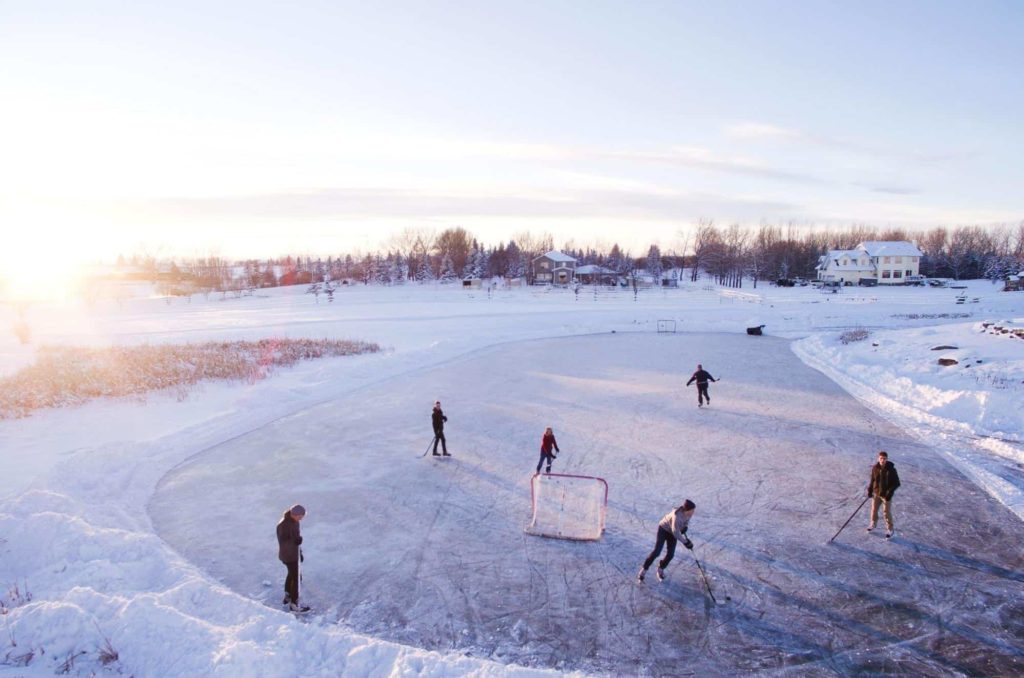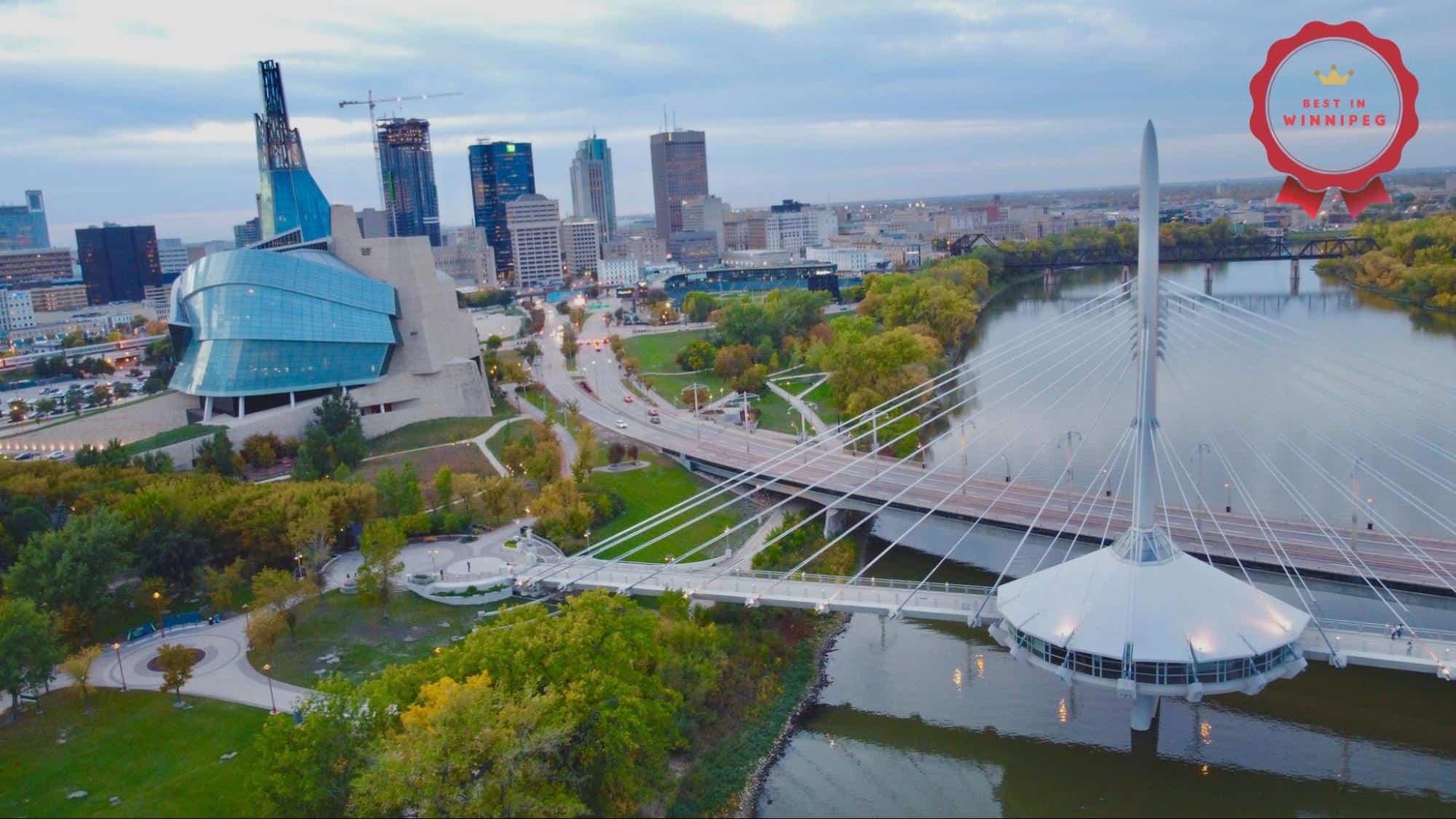7 Reasons to Live in Winnipeg
Being born and raised in Winnipeg is really a fantastic experience. I always find myself doing something new and exciting, especially during the summer and spring.
Our city bursts with culture, history, and natural beauty. And if you’re looking for a place that’s got it all, Winnipeg’s the spot.
We’ve got an incredible arts scene, with galleries and theaters galore. And don’t even get me started on the food — we’ve got all kinds of cuisines here, so you’ll never go hungry.
Plus, if you’re an outdoorsy type, there are endless opportunities for hiking, biking, skiing, and more.
But what really makes Winnipeg special is the people. We’ve got some of the friendliest residents around, and there’s always something going on in the city. There’s never a dull moment, from festivals and concerts to sports games and cultural events.
And the best part? Living in Winnipeg is very affordable. We’ve got a lower cost of living than many other Canadian cities, so you can enjoy a high quality of life without breaking the bank.
So if you’re thinking about making the move, I can give you the reasons to live in Winnipeg and see what our city is all about. I promise you won’t regret it!
Reasons to Live in Winnipeg
1. Affordable Housing

Winnipeg provides affordable housing options. The average rent for a two-bedroom apartment is priced at around $1,113, which is significantly lower than the average of $1,622 in other cities.
Similarly, the average house cost in Winnipeg is $323,000, while it is $489,000 in metropolitan areas.
These lower housing costs in Winnipeg make it an attractive option for those looking to save money or live within their means.
Additionally, there are cheaper housing options in Winnipeg, which you can find in the most affordable neighborhoods in the city.
I personally think that affordable housing in our city is the cherry on top when considering moving here, especially if you are starting your career or moving in with your significant other.
2. Low Cost of Living

The monthly expenses for a single-person household in Winnipeg, covering utilities, transportation, housing, and personal necessities, typically range from $2,500 to $3,000.
Comparatively, the cost of living in Canada is about $4,701, which is roughly 25% more than the cost of living in Winnipeg.
The table above shows that a typical single household in other major Canadian cities incurs higher expenses than an equivalent home in Winnipeg.
However, it’s important to note that the cost of living can vary significantly based on factors such as location, lifestyle, and individual spending habits.
But overall, it is fair to say that Winnipeg has a low cost of living. You can save hundreds of dollars just by living in our city compared to other major cities in Canada.
3. Diverse Employment Options

Winnipeg has an excellent economy with diverse employment options.
The city mainly focuses on health care, social assistance, retail, manufacturing, and public administration. Plus, it houses large Canadian corporations and even government entities.
About 15% of Winnipeg’s workforce is employed in the healthcare sector, making it the city’s largest employer.
And the retail sector follows closely behind, employing approximately 11% of workers. Then the public administration and manufacturing sectors employ 8% of the workforce each.
Furthermore, Winnipeg’s unemployment rate stands at 4.2%, which is lower than the national rate of 5%. This indicates that Winnipeg’s job market is relatively strong and provides ample employment opportunities to its residents.
4. Endless Outdoor Activities

Winnipeg is known for its love of the outdoors and numerous opportunities for outdoor activities. No matter the season, there are endless outdoor activities to enjoy in Winnipeg like hiking, biking, and boating.
In the summer, visitors can explore the city’s beautiful parks and waterways. Assiniboine Park, one of the city’s most popular outdoor destinations, offers walking trails, a garden, a zoo, and a conservatory.
The park also hosts free outdoor concerts and festivals throughout the summer months, which are our favorite times of the year.
In springtime and fall, Assiniboine Park gets prettier. With the Leo Mol Sculpture Garden, most trees and flowers bloom, making it a perfect spot for a picnic or a leisurely stroll.
And in the winter, Winnipeg transforms into a winter wonderland with plenty of outdoor activities to enjoy.
The city’s parks and river trails are perfect for cross-country skiing and snowshoeing while skating enthusiasts can visit The Forks, a popular outdoor skating rink in the heart of the city.
Altogether, Winnipeg truly has endless outdoor activities to offer throughout the year, including hiking, biking, birdwatching, skiing, snowboarding, skating, and even walking tours. There’s definitely something for everyone to enjoy in our city’s great outdoors.
5. Cultural Hub

Winnipeg has a rich cultural history, with influences from Indigenous peoples, French explorers, English settlers, Ukrainian and other Eastern European immigrants, and more recent arrivals from around the world.
Today, Winnipeg’s cultural scene is characterized by a mix of traditional and contemporary arts, music, food, and festivals.
Arts and Museums

Winnipeg’s art scene reflects the city’s diverse mix of cultures and traditions, from various museums to contemporary art galleries.
One of the most important cultural institutions in the city is the Manitoba Museum, which showcases the natural and human history of the province.
The museum features exhibits on the Indigenous peoples of Manitoba, including the Anishinaabe, Cree, and Inuit, and on the French and English fur traders who established trading posts in the region in the 17th and 18th centuries.
In addition to the Manitoba Museum, Winnipeg is also home to several galleries that showcase the city’s cultural heritage.
The Winnipeg Art Gallery, for example, houses a collection of over 27,000 works of art from around the world, including Indigenous art, contemporary art, and works by Canadian artists.
Music

Winnipeg has a thriving music scene that has produced many notable musicians over the years. It also has several professional orchestras like the Winnipeg Symphony Orchestra.
As a matter of fact, the city’s vibrant music community is known for its diversity, with a range of genres represented, from indie rock and folk to jazz and classical music.
Also, Winnipeg is home to many music venues, ranging from intimate clubs to large concert halls, that host a variety of local and international acts throughout the year.
Food

Winnipeg is also home to a diverse and booming food scene.
The city’s culinary landscape reflects its population, with a wide range of restaurants offering cuisines from around the world, including traditional Canadian, Indigenous, Chinese, Italian, and more.
Winnipeg is also known for its local food specialties, such as the famous Winnipeg-style pizza, smoked meat sandwiches, and the traditional Ukrainian dish, perogies.
Indeed, our food scene is constantly evolving, with new restaurants popping up all the time and innovative chefs pushing the boundaries of traditional cuisine.
Moreover, our food truck scene is a Winnipeger’s favorite, with vendors offering everything from classic burgers and fries to international street food.
Festivals

Winnipeg is also known for its many festivals and events, which showcase the city’s cultural diversity.
Here are some of the best festivals in the city:
- Festival du Voyageur – a 10-day festival for the celebration of French-Canadian culture, music, and cuisine held in February.
- Winnipeg Folk Festival – a four-day festival featuring folk, roots, and world music held in July.
- Winnipeg Fringe Theater Festival – a 12-day festival featuring alternative theater and performing arts held in July.
- Winnipeg International Jazz Festival – a week-long (or more) festival featuring jazz musicians from around the world held in June.
- Winnipeg International Children’s Festival – a four-day festival featuring theater, music, and storytelling for children held in June.
- Winnipeg Comedy Festival – a week-long festival featuring stand-up comedy and other comedic performances held in April.
6. The Sports Scene

The sports scene in Winnipeg is full of life, featuring a diverse range of teams and events catering to its residents’ varying interests. It also offers many opportunities for aspiring athletes.
The most prevalent sports in Winnipeg are football and ice hockey.
The city is home to the Winnipeg Jets, a professional ice hockey team that plays in the National Hockey League (NHL). The Jets have a dedicated fan base and play their home games at Bell MTS Place, which has a seating capacity of over 15,000.
Winnipeg has another professional team known as the Winnipeg Blue Bombers. The Blue Bombers play in the Canadian Football League (CFL) to represent the city.
Not to mention, they have also won multiple championships and play their home games at IG Field, which can seat over 33,000 fans.
As said, Winnipeg’s sports community also caters to aspiring athletes, providing an array of recreational leagues for basketball, soccer, and other sports.
This allows residents to maintain an active lifestyle while meeting fellow enthusiasts with similar interests.
7. Affordable Education

Winnipeg is home to several world-renowned universities and colleges that offer high-quality education at an affordable cost.
Tuition fees in Winnipeg cost around $9,000 to $25,000 per year for undergraduate programs.
The city’s dedication to accessible education has made it a popular destination for international students seeking quality education at an affordable price.
One of the primary reasons why Winnipeg has affordable education is due to the province of Manitoba’s commitment to providing accessible post-secondary education to its residents.
Manitoba has one of the lowest tuition fee structures in Canada, compared to the Canadian average of $20,000 to $26,000 per year.
This makes it an attractive option for students who wish to pursue higher education but are deterred by the high tuition costs in other provinces.
Additionally, several scholarships and financial aid programs are available to students in Winnipeg, which further reduce the cost of education.
For example, the Manitoba Scholarship and Bursary Initiative provide financial assistance to students who demonstrate financial need and academic merit. The program awards more than CAD 10 million in scholarships and bursaries annually.
Overall, Winnipeg’s commitment to accessible education, coupled with its low cost of living and a range of financial aid programs, makes it an excellent destination for students seeking affordable higher education.
Things to Know Before Moving to Winnipeg

Just like Winnipeg, there are always pros and cons to every city in the world. And ultimately, there are also factors you need to consider so you can prepare for a successful move to Winnipeg and make the most of all this vibrant city has to offer.
So here are the things you need to know before moving to Winnipeg.
1. Harsh Climate
Winnipeg has a continental climate, which means it experiences long, cold winters and short, warm summers. Temperatures can drop to -30°C or lower during the winter months, so it’s important to be prepared for the cold weather.
2. Inadequate Public Transport
Winnipeg has a public transportation system that includes buses and a rapid transit system called the Winnipeg Transitway. The city is also bike-friendly, with many bike lanes and trails throughout the city.
However, a car may be necessary for some areas of the city, particularly in the suburbs, since public transport does not reach them.
3. High Crime
Winnipeg is generally a safe city, but like any urban center, there are some areas that are considered higher risk. Do your research before choosing a neighborhood to ensure you feel safe and comfortable in your new home.

